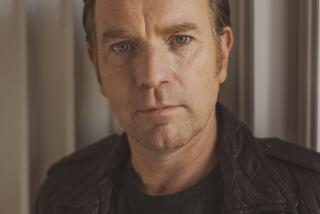The teen behind the curtain
- Share via
The history of the teenage studio wizard is much shorter than that of the teenage pop star. Bobby Fuller built an echo chamber in his backyard while recording early versions of “I Fought the Law,” and Prince raised label eyebrows when he demanded to helm nearly all the instruments on his first solo records. DJ Kool Herc was barely in his teens when he began throwing the block parties whose soundtracks became the drawing board for what would become hip-hop.
Add Stephen McGregor to that thin list of producers who can’t legally crack a beer after crafting a killer single. The 16-year-old son of reggae kingpin Freddie McGregor is about to formally introduce himself to American audiences on Sean Paul’s new track “Watch Them Roll.”
The single is based around McGregor’s “Tremor Riddim” track that’s made waves on the Jamaican dancehall mixtape circuit in recent months. It’s a sleek, heaving beat based around eerie stabs of synthesizer and clattering high-hats that perfectly serve Paul’s melodic patois. Expect to hear much, much more of it in months to come.
“Reggae music is now taking a big turn into the more ‘popular’ mainstream market,” McGregor said. “These genres are naturally evolving into greater art forms as well.”
McGregor’s Big Ship Studios is one of the busiest hubs for the “dark dub” sound dominating Kingston right now. The genre scratches at the bleeding-heart laments behind gangsta street posturing, and artists including Mavado (who, not coincidentally, used the Tremor Riddim for his track “Amazing Grace”) and Aidonia are coalescing into a thrilling scene, with McGregor one of its most in-demand beat makers.
McGregor and Sean Paul share a manager, Jeremy Harding, who brought the two together. But as McGregor’s studio’s name would indicate, his most well-known affiliation, his father, gives him both instant recognition and a family legacy to live up to.
“It just reminds me that anything I do has to be done professionally to maintain the standard that was set from before I started,” McGregor said. “The type of music I do is what differentiates me from my history.”
While his surname is rooted in reggae’s past, McGregor’s sound may well be its future. After Sean Paul’s approving nod, it also might be a vital jolt to hip-hop in the year to come. At 16, McGregor has plenty of time to work toward it.
“I look at breaking at this age as more of an advantage,” McGregor said. “That means I am able to produce music for the generation that is mainly interested in this kind of music. It’s safe to say that I still have a vast amount of years ahead of me to continue to do what I do.”
Wait, that’s not how Rollins sang it
On Dirty Projectors’ latest album, “Rise Above,” Dave Longstreth out-Black Flags the actual Black Flag. Greg Ginn’s pioneering ‘80s hard-core punk band reimagined the possibilities of aggressive rock music on its album “Damaged.” Longstreth reimagines the possibilities of Black Flag’s songs; namely, what the band would sound like with a female choir, a punch-drunk Jeff Buckley on vocals and no allegiance to linear song structure.
“Rise Above’s” trick goes as such: While cleaning out his old bedroom in his parents’ house, Longstreth dug up the album cover of his childhood copy of “Damaged.” Using his own (significantly faded) memory of the album as his only reference, he covers “Damaged” track for track on “Rise Above.” Sort of. His stream-of-consciousness arrangements evoke Don Caballero’s pinging guitar interplay and Joanna Newsom’s sylvan whimsy more than Henry Rollins’ vein-rupturing growl.
“I think it has its own spirit,” Longstreth said of his album. “I do revere [Black Flag’s] songs, and I don’t mean them any disservice. But they can be vessels for a lot of different feelings, and to say ‘Damaged’ is only ‘angry’ is simplistic.”
Anyone who pegs “Rise Above” as an insouciant art kid’s prank to knock the wind out of one of hard-core’s most revered documents misses the point of “Rise Above.” It’s an illustration of how a beloved album affects you over time and what it means to grow out of it.
“What I was interested in was what I would get wrong,” Longstreth said. “The process of memory is intertwined with fantasy, and that’s why ‘Rise Above’ turned out to be exactly what I wanted to do.”
--
More to Read
The biggest entertainment stories
Get our big stories about Hollywood, film, television, music, arts, culture and more right in your inbox as soon as they publish.
You may occasionally receive promotional content from the Los Angeles Times.











